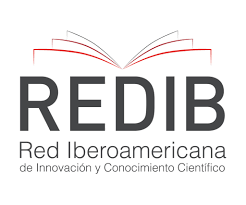Interiority and Trascendence. From Antiquity to Early Christianity
DOI:
https://doi.org/10.51743/cpe.472Keywords:
early Christianity, interiority, neoplatonism, spiritual theology, trascendenceAbstract
Interiority is an underlying theme of the Neo-Platonic tradition. Since Plotinus, the Neo-Platonic tradition has indeed ascribed to interiority an absolutely central role in the path that man must follow in order to reach the ultimate goal of his existence. For in the Neo-Platonic view, the divine Principles of reality do not exist only in themselves, separate or transcendent from the whole universe, but they are at the same time actively present in us, making possible the exercise of our cognitive activities. The aim of this paper is to examine the reception and at the same time the profound transformation of this central theme of the Neo-Platonic tradition by fourth-century Greek theology. By this we mean to show how, through the confrontation with the philosophy of its time carried out by fourth-century Greek theology, the latter was able to place at the centre of its reflection the authentically Christian question of man’s insufficiency before himself, and was able to do so with a radicality and intensity unknown to the previous philosophical culture, thus endowing its spiritual theology with the strength and appeal that it continued to exert in the subsequent tradition.
Downloads
References
Andresen, C. (1981). Justin und mittlere Platonismus. En C. Zintzen (Ed.), Der Mittelplatonismus (pp. 319-368). Wissenschaftliche Buchgesellschaft.
Aubineau, M. (1959). Le théme du bourbier dans la littérature grecque profane et chrétienne, Recherches de Science Religieuse, 47, pp. 185-214.
Beierwaltes, W. (1995). Plotin. Über Ewigkeit und Zeit, Enneade III 7. Vittorio Klostermann.
Bodëus, R. (1983). L’Autre Homme de Plotin, Phronesis, 3, pp. 256-264. DOI: https://doi.org/10.1163/156852883X00149
Canévet, M. (1967). Saint Grégoire de Nysse, Dictionnaire de Spiritualité, VI, pp. 971-1011.
Courcelle, P. (1974-75). Connais-toi-même. De Socrate à Saint Bernard, 3 vol. Les Belles Lettres.
Daniélou, J. (1954). Platonisme et théologie mystique. Essai sur la doctrine spirituelle de S. Grégoire de Nysse, Aubier.
Daniélou, J. (1958). Grégoire de Nysse et Plotin. En Association Budé (Ed.), Actes du Congrès de Tours et Poitiers (pp. 259-262). Les Belles Lettres.
Dörrie H. (1974 a). Der Platonismus in der Kultur und Geistesgeschichte der frühen Kaiserzeit. En H. Dörrie, Platonica Minora (pp. 165-210), Fink.
Dörrie, H. (1974 b). Der Platoniker Eudoros von Alexandreia. En H. Dörrie, Platonica Minora (pp. 297-309), Fink.
Dörrie, H. (1974 c). Was ist spätantiker Platonismus? En H. Dörrie, Platonica Minora (pp. 508-523), Fink.
Dörrie, H. (1981). Die andere Theologie, Theologie und Philosophie, 56, pp. 1-46.
Greshake, G.-Kremer, J. (1986). Resurrectio mortuorum. Wissenschaftliche Buchgesellschaft.
Gritti, E. (2000). Salvezza dell’anima e “ritorno in patr”: Plotino e le metafore della soteria. En Pagani e cristiani alla ricerca della salvezza, secoli I-III (pp. 429-447). Institutum Patristicum Augustinianum.
Horn, Ch. (1998). Antike Lebenskunst, Beck.
Hadot, P. (1978). Les divisions des parties de la philosophie dans l’Antiquité, Museum Helveticum, 36, pp. 201-223.
Hadot, P. (1981). Exercises spirituels et philosophie antique. Études Augustiniennes.
Hadot, P. (1987). Théologie, exégese, révélation, écriture dans la philosophie grecque. En M. Tardieu (éd.), Les régles de l’interpretation (pp. 13-34), Les Èditions du Cerf.
Hadot, P. (1995). Qu’est-ce que la philosophie antique? Gallimard.
Heidegger, M. (1995). Augustin und der Neuplatonismus. En M. Heidegger, Phänomenologie des religiösen Lebens, Gesamtausgabe, 60, herausg. von C. Strube, Vittorio Klostermann.
Jonas, H. (1930). Augustin und das paulinische Freiheitsproblem, Vandenhoeck & Ruprecht.
Leclerq, J. (1952). Pour l’histoire de l’expression philosophie chrétienne, Mélanges de Science Religieuse, 9, pp. 221-226.
Merki, H. (1952). OMOIOSIS THEOI. Von der platonischen Angleichung an Gott zur Gottähnlichkeit bei Gregor von Nyssa. Paulusverlag1952.
O’Daly, G. (1973). Plotinus’ Philosophy of the Self. Irish University Press.
Pépin, J. (1971). Idées grecques sur l’homme et sur Dieu. Les Belles Lettres.
Pépin, J. (1982). The Platonic and Christian Ulysses. En D. J. O’Meara (Ed.), Neoplatonism and Christian Thought (pp. 3-19). State University of New York Press. DOI: https://doi.org/10.2307/jj.18255107.4
Pépin, J. (1992). Philologos/Philosophos. En L. Brisson (éd.), Porphyre. Le vie de Plotin (vol. II, pp. 477-501). Vrin.
Peroli, E. (1993). Il Platonismo e l’antropologia filosofica di Gregorio di Nissa. Vita e Pensiero.
Peroli, E. (2003). Dio, uomo e mondo. La tradizione etico-metafisica del Platonismo. Vita e Pensiero.
Peroli, E. (2013). Dialectic of Freedom. Hans Jonas and Augustine, Dionysius, 1, pp. 141-160.
Pöggeler, O. (1990). Der Denkweg Martin Heideggers, Neske Verlag.
Remes, P. (2007). Plotinus on Self. The Philosophy of «We». Cambridge University Press. DOI: https://doi.org/10.1017/CBO9780511597411
Richards J. (2017), Transcendence and Divine Passion: The Theological Anthropology of Origen and Gregory of Nyssa. Oxford University Press.
Schwyzer, H.-R. (1960). «Bewußt» und «Unbewußt» bei Plotin. En Fondation Hardt (éd.), Les Sources de Plotin (pp. 343-378). Presses Universitaires de France.
Solère, J.-L. (2002). La philosophie des théologiens. En J.-L. Solère-Z. Kaluza (éd.), La servante et la consolatrice. La philosophie dans ses rapports avec la théologie au Moyen Âge (pp. 1-44). Vrin.
Sorabji, R. (2000). Emotion and Peace of Mind. From Stoic Agitation to Christian Temptation. Oxford University Press.
Verghese, T. P. (1976). Diastema and Diastasis in Gregor of Nyssa. En H. Dörrie-M. Altenburger-U. Schramm (Eds.), Gregor von Nyssa und die Philosophie (pp. 243-260). Brill. DOI: https://doi.org/10.1163/9789004677210_016
Völker, W. (1965). Gregor von Nyssa als Mystiker. Franz Steiner.
Williams, R. (1993). Macrina’s Deathbed Revisited: Gregory of Nyssa on Mind and Passion. En L.R. Wickham-C.P. DOI: https://doi.org/10.1163/9789004312852_014
Bammel (Eds.), Christian faith and Greek Philosophy in Late Antiquity (pp. 227-246). Brill.
Zemp, P. (1970). Die Grundlagen heilsgeschichtlichen Denkens bei Gregor von Nyssa. Max Hueber.
Published
How to Cite
Issue
Section
License
The author reserves the rights (copyright) of the published works, and the journal encourages and allows their reuse, from the preprint. The works are published in the electronic edition of the journal under a license "Creative Commons Attribution / Attribution-NonCommercial 4.0 International Public License - CC BY-NC 4.0", and can be copied, used, disseminated, transmitted and publicly exhibited.
The author / s partially transfer the property rights (copyright) of this work for the printed and online editions, provided that:
- The authorship and original source of its publication (magazine, publisher and URL of the work) is cited.
- Are not used for commercial purposes.
- The existence and specifications of this user license are mentioned.
It also declares to have respected the ethical principles of research and to be free from any conflict of interest.
"C.P.E." encourages the authors and the scientific community to the maximum promotion and dissemination of the works in their final version through:
1) Your list of contacts (emails) and social networks (Facebook, Twitter, LinkedIn ...).
2) Institutional repository of your University and public repositories (Mendeley, Cosis ...).
3) Scientific social networks (ResearchGate, Academia.edu, Kudos ...).
4) Personal or institutional website, blog, etc.
5) Google Scholar, ORCID, ResearchID, ScopusID, Dimensions, PlumX ...
6) Printed copies purchased directly and sent to specialists for reading and subsequent citation if appropriate.




















1.png)
1.png)

1.png)





.png)
.png)

.png)
1.png)
1.png)
